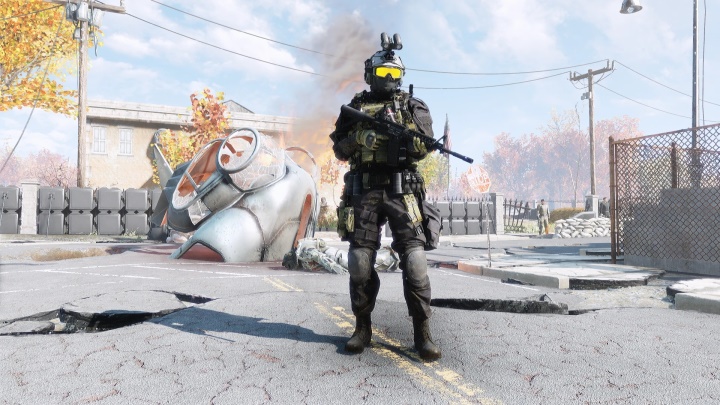DC Comics has become a household name synonymous with superheroes, iconic storylines, and a massive fanbase. Whether you’re a long-time comic book enthusiast or just starting to explore the world of comics, the name DC Comics evokes thoughts of Superman, Batman, Wonder Woman, and more. But, have you ever wondered, what does DC Comics stand for? In this article, we’ll explore the origins of DC Comics, decode the meaning behind the acronym, and delve into the incredible legacy this company has built over the years.
Table Of Contents
- The Origins of DC Comics: A Brief History
- What Does DC Comics Stand For? The Meaning Behind the Acronym
- The Iconic Superheroes of DC Comics
- The Expansion of the DC Universe
- The Legacy and Influence of DC Comics
- Conclusion: What DC Comics Stands For Today
The Origins of DC Comics: A Brief History
DC Comics, originally known as National Allied Publications, was founded in 1934 by Malcolm Wheeler-Nicholson. Its early years focused on publishing pulp magazines, but in 1935, the company transitioned into the comic book industry. The comic book publisher quickly gained attention, and by 1938, they introduced one of the most famous characters of all time: Superman. This marked the beginning of the superhero genre in comics and set the foundation for the rise of DC Comics as a powerhouse in the industry.
The company underwent several name changes before it eventually became known as DC Comics in 1977. While the company had been using the “DC” abbreviation for some time due to its popular comic book series Detective Comics, the official name change solidified its identity as the iconic comic publisher we know today.
Read more: Justice League 2
What Does DC Comics Stand For? The Meaning Behind the Acronym
The answer to the question, “What does DC Comics stand for?. The series was first introduced in 1937 and became the home of Batman, one of the most beloved and enduring characters in comic book history.
So, while “DC” may simply seem like an acronym for the company itself, it actually has deeper roots connected to one of its flagship publications. The name Detective Comics was meant to emphasize the detective genre, a popular theme in pulp fiction at the time, and it was this focus that eventually led to the creation of the Dark Knight, Batman, in Detective Comics #27 in 1939.
Today, “DC” has come to represent the entire comic book universe of superheroes and characters, with the company standing as one of the two major players in the comic book industry, alongside Marvel Comics.
The Iconic Superheroes of DC Comics
When you think of DC Comics, chances are the first characters that come to mind are the legendary superheroes who have become cultural icons. Some of the most popular and influential superheroes from DC Comics include:
- Superman: Often called the Man of Steel, Superman made his debut in Action Comics #1 in 1938. With super strength, flight, and x-ray vision, Superman quickly became the face of DC Comics and a symbol of hope and justice.
- Wonder Woman: Created by William Moulton Marston, Wonder Woman made her first appearance in All-Star Comics #8 in 1941. As an Amazonian warrior princess, Wonder Woman has become a feminist icon and one of the strongest and most capable superheroes in the DC Universe.
- The Flash: First appearing in Showcase #4 in 1956, the Scarlet Speedster is known for his superhuman speed and ability to tap into the Speed Force, an extra-dimensional energy source.
These superheroes, along with many others, form the core of the DC Comics universe, and their stories have inspired generations of fans across various media, including films, television shows, and video games.

The Expansion of the DC Universe
Over the decades, the DC Comics universe has expanded far beyond its original comic book series. In the 1960s and 1970s, the company began introducing new characters and reinventing older ones to keep pace with changing cultural and social movements. The introduction of characters like Green Lantern (Hal Jordan), The Justice League, and The Teen Titans helped further solidify DC’s place as a major player in the superhero genre.
One of the most significant expansions came in the 1980s with the Crisis on Infinite Earths storyline, which unified the DC multiverse and set the stage for modern interpretations of DC Comics characters. Over time, DC Comics continued to explore the boundaries of the superhero genre with notable storylines such as The Dark Knight Returns (1986), Watchmen (1986-1987), and The Killing Joke (1988), which pushed the limits of storytelling in comics and redefined how superheroes could be depicted.
The DC Universe expanded further through successful films and television shows. DC Comics’ Extended Universe (DCEU) began with the release of Man of Steel in 2013, followed by Batman v Superman: Dawn of Justice (2016) and Wonder Woman (2017), bringing some of their most famous characters to the big screen. TV shows like Arrow, The Flash, and Supergirl further helped broaden the scope of DC’s storytelling.
The Legacy and Influence of DC Comics
DC Comics has left an indelible mark on the world of comic books and popular culture. The company’s iconic superheroes and complex, often groundbreaking storytelling have influenced countless creators across various media. From shaping the superhero genre to introducing darker, more mature themes in storytelling, DC Comics continues to be a trailblazer in the world of entertainment.
Moreover, DC’s influence extends far beyond comics. The superheroes of DC Comics have become symbols of hope, justice, and power, resonating with fans around the world. The company has also been instrumental in fostering diversity, with heroes like Black Lightning, Green Lantern (John Stewart), Batgirl, and Static Shock serving as inspirations for marginalized communities.
DC Comics’ longstanding commitment to innovation has kept it at the forefront of the comic book industry, and its characters and stories continue to be relevant, meaningful, and powerful in today’s world.
Conclusion: What DC Comics Stands For Today
So, what does DC Comics stand for today? While it originally stood for Detective Comics, the acronym has evolved to represent much more. DC Comics stands for timeless storytelling, larger-than-life superheroes, and a rich legacy that has shaped popular culture for generations. It’s a name synonymous with justice, heroism, and the power of imagination. From the creation of Superman to the endless expansion of the DC Universe, DC Comics has played a pivotal role in defining modern comic book culture. Whether you’re a lifelong fan or a newcomer to the world of comics, understanding what DC Comics stands for is to appreciate the vast, vibrant world of heroes and villains that continues to inspire and entertain millions worldwide.













